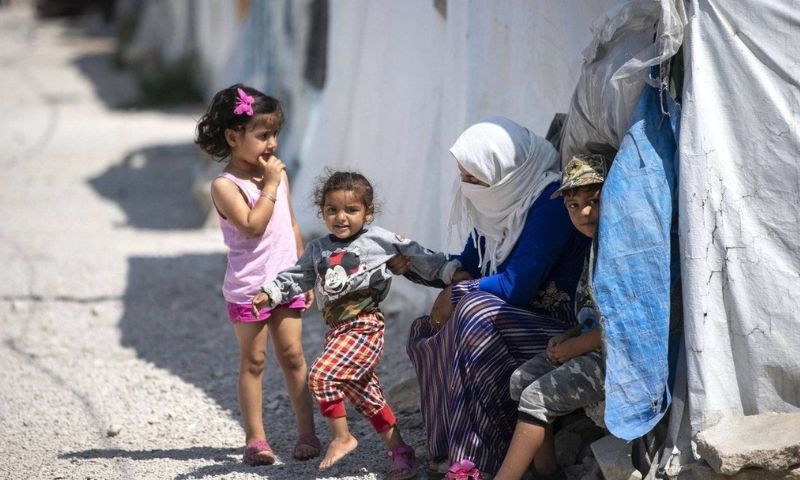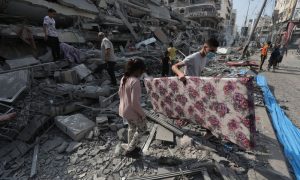UNITED NATIONS: Lebanon finds itself in the throes of one of the most severe humanitarian crises on a global scale, as highlighted by the United Nations (UN). Nearly four million people in the country are in desperate need of essential resources and assistance, but regrettably, less than half of this vulnerable population is receiving aid due to a critical shortfall in funding.
Imran Riza, the UN’s humanitarian chief for Lebanon, underlined that the amount of assistance being distributed by the international body falls far below the minimum required for survival. This dire situation stems from a compounding series of multiple crises that Lebanon has endured over the past four years. The World Bank has described these challenges as among the ten worst financial and economic crises since the mid-19th century. Consequently, the humanitarian needs of the entire populace have soared dramatically.
Since the initiation of the financial crisis in October 2019, Lebanon’s political leadership, long chastised for decades of corruption and mismanagement, has shown reluctance to implement necessary economic and financial reforms, as urged by the international community. Despite starting discussions with the International Monetary Fund (IMF) in 2020 to secure a much-needed bailout, Lebanon’s leaders have hesitated to enact essential changes, despite a preliminary agreement reached last year.
Political instability in Lebanon
Imran Riza noted that Lebanon has been without a president for almost a year, and many of its vital institutions have ceased to function. The UN estimates that approximately 3.9 million individuals in Lebanon require urgent humanitarian assistance. This includes 2.1 million Lebanese, 1.5 million Syrians, 180,000 Palestinian refugees, over 31,000 Palestinians from Syria, and 81,500 migrants.
In the previous year, the UN provided aid to about a million Syrians and just under 950,000 Lebanese. Unfortunately, the situation continues to worsen. Riza lamented that everything seems to be on a negative trajectory, with the UN receiving only about 40 percent of the funding required in 2022. Alas, this trend has persisted into the current year—resources are dwindling, while the needs of the affected population continue to escalate.
In the case of Lebanon, the crisis has not garnered the attention that some other humanitarian emergencies have received, causing grave concern among aid organizations. Urgent action is crucial to address this burgeoning crisis and prevent further suffering and devastation. International support, funding, and focused efforts are vital to ensure the well-being and survival of the millions of people struggling in Lebanon.























